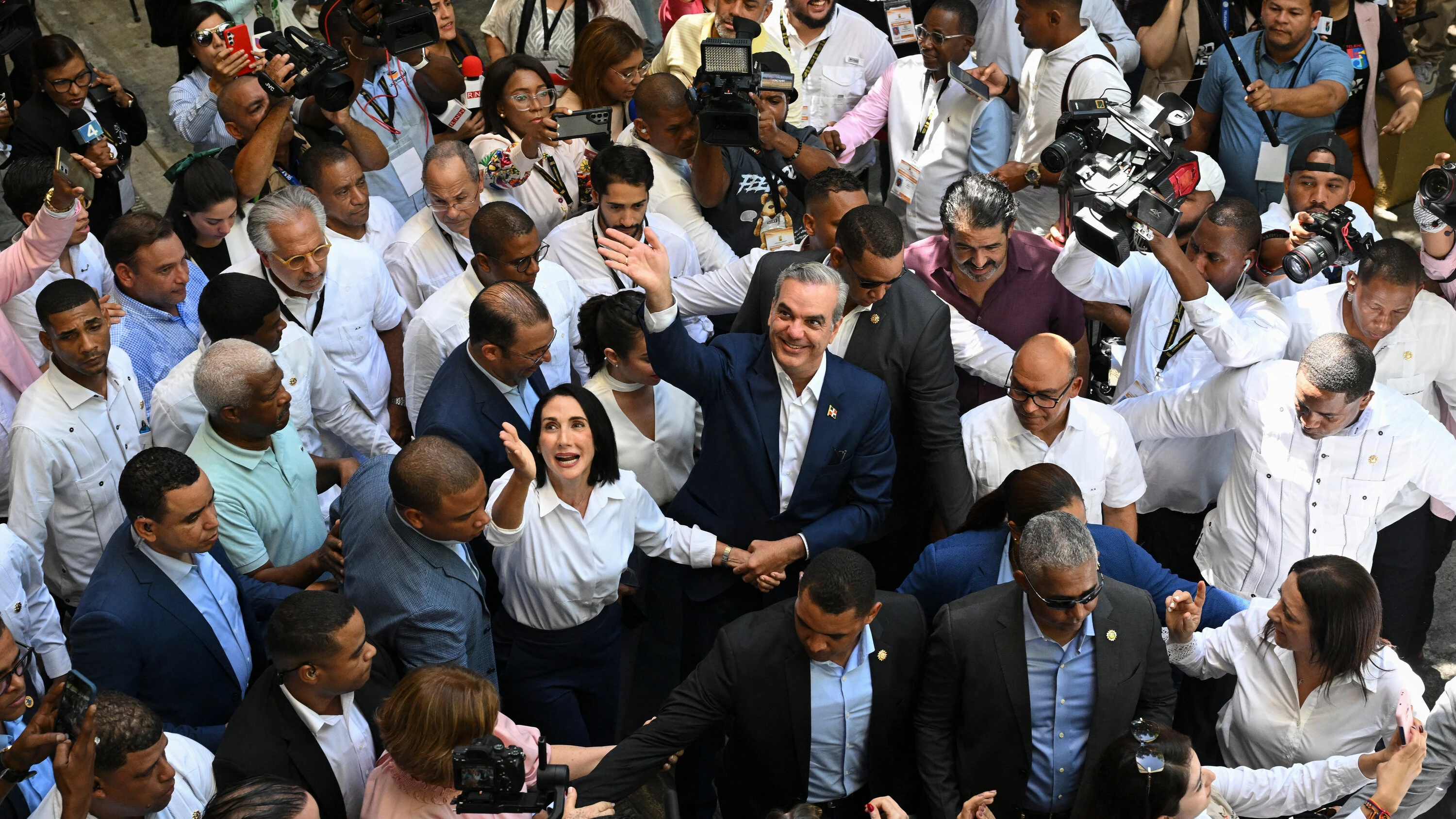Dominican Republic's President Abinader wins resounding re-election

Stay tuned with 24 News HD Android App

Dominican Republic President Luis Abinader clinched a second term in office with a commanding election win, endorsing his handling of the economy and tough policies toward migration from Haiti, results showed Monday.
The two nations share the Caribbean island of Hispaniola, but the much more prosperous Dominican Republic stands in stark contrast to its poverty and gang violence-plagued neighbor.
Abinader's rivals quickly conceded defeat after Sunday's vote, with a little over half of ballots counted handing him 51.74 percent of the total. His nearest competitor, former president Leonel Fernandez, had scored 29.34 percent.
The president's Modern Revolutionary Party (PRM) was also headed for a majority in Congress.
"The people have expressed themselves clearly... I accept the trust I have received and the obligation not to disappoint," Abinader said in a speech before hundreds of supporters at his campaign headquarters in the capital Santo Domingo.
Nelson Espinal, a Dominican specialist in public litigation at Harvard, told AFP that the Dominican Republic was a "very conservative" country and that Abinader's tough migration politics had played a key role in his popularity.
"The disastrous situation of Haiti, a failed state, makes the Dominican people very vigilant and very cautious" regarding relations with their neighbor, he said.
The election "consolidates, strengthens" Abinader's power, Espinal added.
'Things can improve'
Abinader is a US-trained economist of Lebanese descent and multi-millionaire heir of a family tourism and construction empire.
He was elected during the Covid pandemic in 2020 on promises of restoring trust in the government after several high-profile corruption scandals embroiling public officials in the top tourist destination.
Once in office, he began building a 164-kilometer (102-mile) concrete wall along the border with Haiti to keep out undocumented migrants.
He had more than 250,000 migrants deported in 2023.
The president enjoys domestic approval ratings of around 70 percent -- more than when he was elected -- despite international pressure for the Dominican Republic to welcome more refugees.
The migration issue was not a divisive one in the election, with both Fernandez and Abinader backing the deportation of Haitian migrants and increased border security.
Voter Javier Taveras, 38, told AFP on election day that he "likes the current position of maintaining sovereignty," though not "the abuse against our Haitian brothers."
As for the border wall, "I don't know how effective it is," he said.
A Gallup poll showed 47.5 percent of Dominicans believe the country was "on the right path" and 40 percent believed the economy is doing better than before.
Maria Ramona Antonio, a 74-year-old dentist, said she believed Abinader has done well and voted for his re-election.
"Look how tourism is going, which is the best source of work for us... the roads built, those people in need who now have health insurance," she told AFP in Santo Domingo.
Fernandez had accused the government of manipulating growth data. The World Bank reports that the Dominican economy grew 2.5 percent in 2023.
Abinader rose to power on an anti-corruption platform. His minister of public works, Deligne Ascencion assured on Sunday that the elections were clean, despite complaints from opposition camps of vote-buying.
The country's electoral commission reported it had not received any formal complaint of such irregularities.
Abinder promised in his speech Sunday to not seek a third term as president, saying "it is my word, it is my commitment and it will be part of my legacy to the Dominican Republic."
